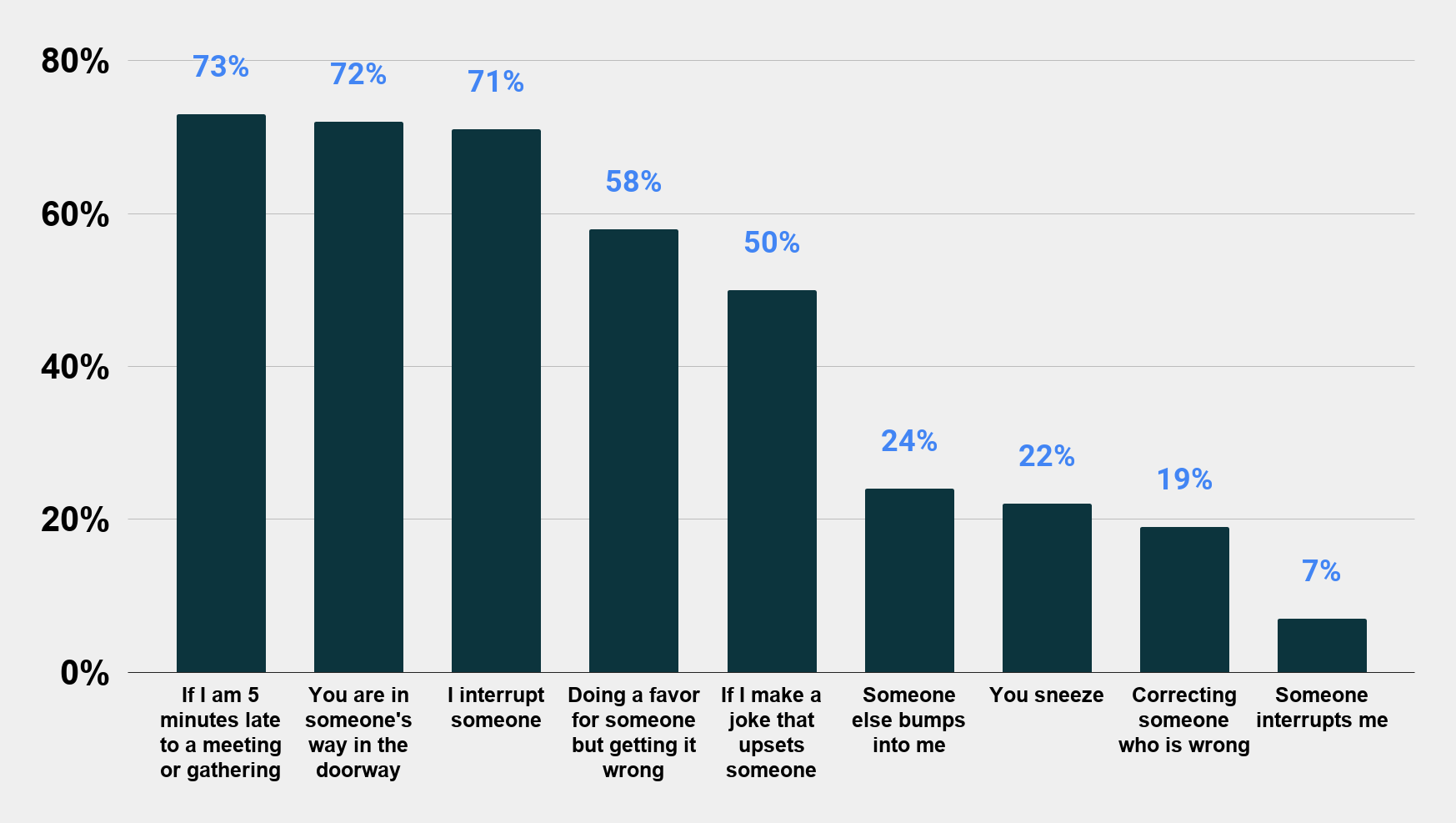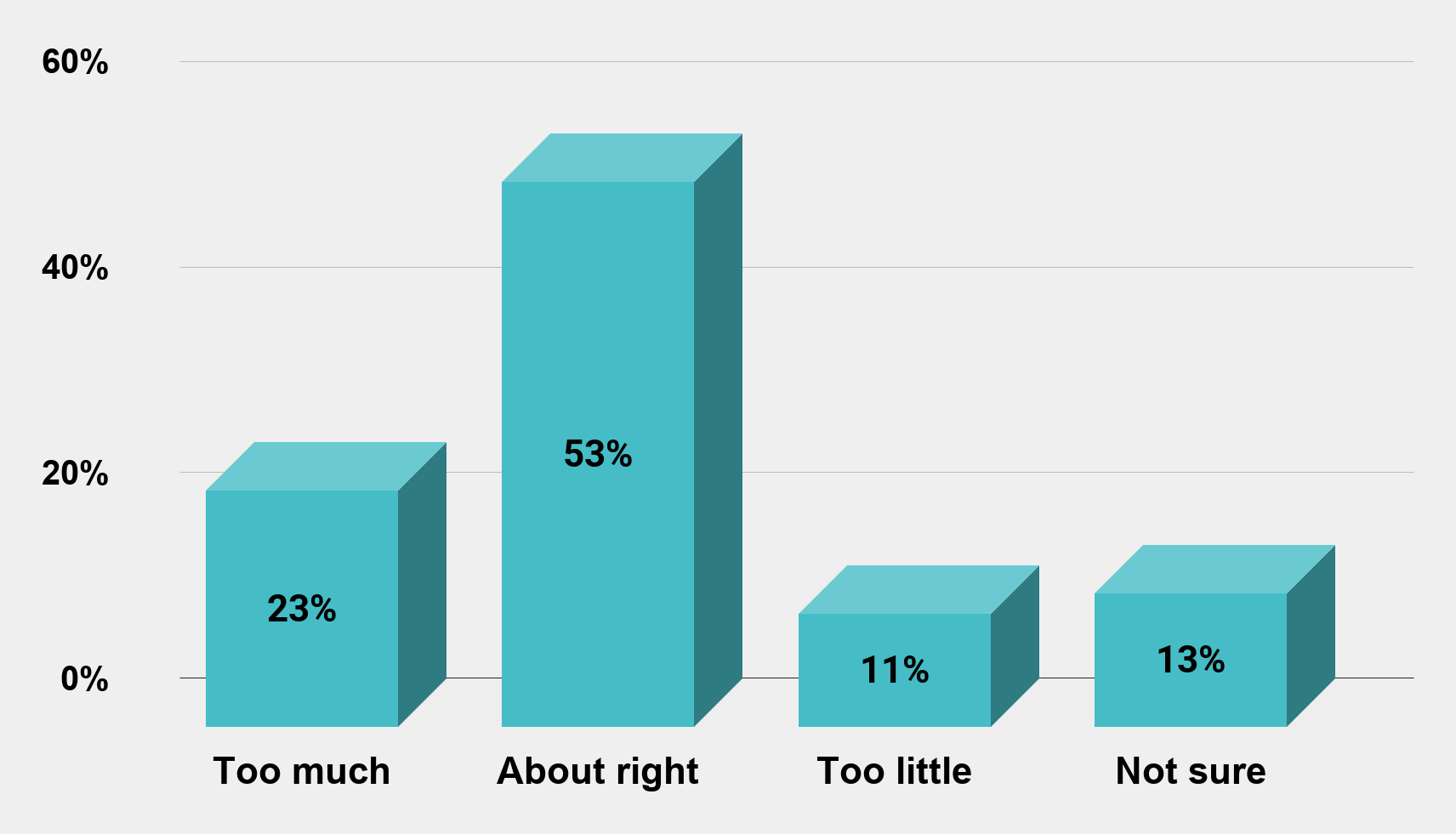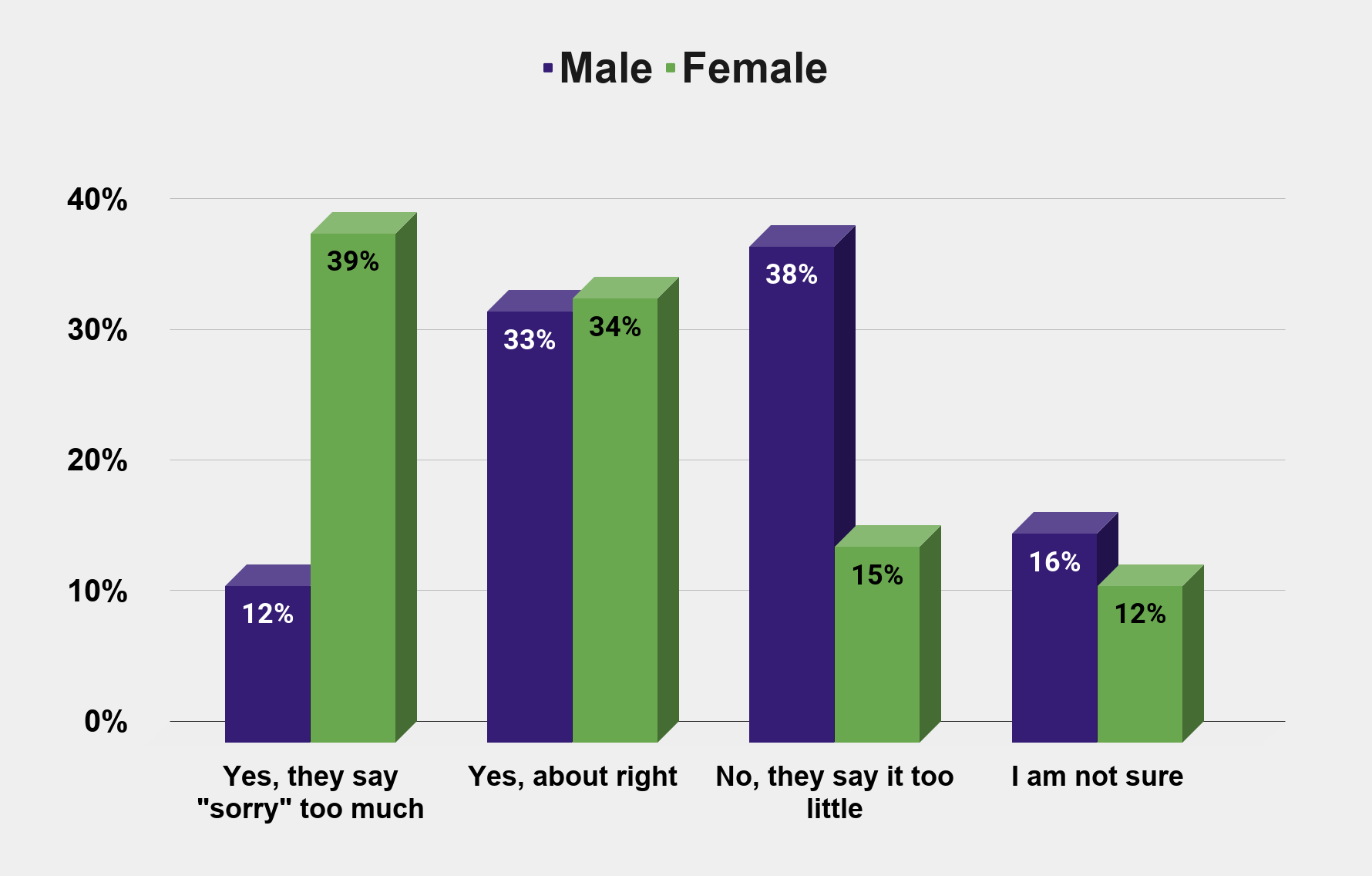What to Do When Someone Won't Apologize
WhatToGetMy Instructional Article
- Apologizing is not exactly second nature nor does it come easily to us as humans.
- Not all situations demand an apology. Find out the exceptions to when an apology becomes necessary.
- Where an apology becomes necessary, following the 5 steps listed in this article for what to do when someone won’t apologize.
APOLOGIES – IMPORTANT OR OVERRATED?
Table of Contents
Have you ever felt like people just never apologize to you when they wrong you? Or when they do apologize, they either give it half-heartedly or never mean it? Or they apologize and keep doing the same thing they apologized for? And you get so angry and worked up because you feel taken for granted.
It is important to understand that apologizing is actually a very difficult thing for us humans to do. Apologizing is basically one accepting that they screwed up and messed things up. And we know that accepting that we are not as perfect as we believe ourselves to be, is not something that we find easy to do. It is easier to apologize for an issue we think doesn’t speak too much about us screwing up. For example, this 2015 survey shows that on the top list of what Americans say sorry for, the big issues hardly appear on it, although in the same survey 53% of the same participants took the view that they apologized about the right amount.
Things that make Americans say sorry (July 2015)
Source: Yougov.co.uk
How frequently do you apologize (U.S. July 2015)
Source: Cloudfront.net
Interestingly, it seems men and women are wired differently when it comes to apologizing. A 2010 scientific research explains that why this seems to be so is because the understanding between the genders on what kind of behavior and conduct is deserving of an apology is different. While females seem to have higher empathy levels and apologize quite easily for even things they should not be apologizing for, men find it harder. And interestingly, the scientific research is also agreed to in a further 2015 survey carried out amongst Americans.
Who apologizes too much or too little between men and women (U.S. July 2015)
Source: Cloudfront.net
The art of apologizing and doing it well is however very important to a healthy society. It fosters overall good emotional and psychological health in society for this reason. When people generally feel wronged and feel that they are owed an apology which they never get, it stirs up feelings of anger and resentment. They take this out on others. And because they are themselves hurt, and never received the apology they felt they deserved, they also exact their retribution by refusing to apologize to the ones they hurt. And thus the vicious cycle continues to play out because hurt people hurt people.
What then is the art to apologizing and what do you do when someone won’t apologize? Let us first examine what apologizing isn’t – in other words, instances where an apology isn’t necessary and should not even be sought for.
SCENARIOS WHERE YOU SHOULD NOT BE EXPECTING AN APOLOGY AND WHEN AN APOLOGY IS NOT NECESSARY.
There are at least three scenarios and instances where you expecting an apology would be out of place and unreasonable. These instances are the following:
1. At Work/on a Professional Level.
Your boss/superior/supervisor gave you work to do and put you on a deadline. You have failed to deliver on the task given to you, and your boss/superior/supervisor is understandably unhappy with you and your failure to deliver. As a result of their frustration and annoyance at your failure to deliver, they have a go at you and sharply reprimand you.
While you may not like the tone they may have used in registering their displeasure with you, it would be unreasonable to expect your boss/superior/supervisor to apologize to you for expecting you to do your work properly. It would be very unreasonable to expect them to apologize to you for their choice to register their displeasure with you in the manner that they did. Their action(s) is in line with their expectation(s) that you perform your duties as hired for.
And if you do not like being brought to order in the fashion they choose, then best to be on your best behavior and carry out your task(s) professionally and efficiently.
This is however different from a fellow coworker. As coworkers are to respect each other, you are within bounds to expect that if your coworker acts in a disrespectful or untoward way towards you, they will apologize for it. Read on to find out what to do if that coworker won’t apologize for treating you disrespectfully or wrongly.
2. People’s personal space and other personal things.
So say your friend bluntly tells you that you cannot use his/her personal items or belongings, or cannot stay with him/her at their house over the weekend. Or perhaps they chose to attend to their own personal needs at the very minute you needed them to come and hang out with you. Expecting an apology in any of these scenarios is also unreasonable.
Your friend’s space and time and belongings are his or hers alone, and they do not need to apologize to you for how they use or do not use it. Therefore, expecting someone to apologize to you for how they use their personal belongings and time simply because they have not used it the way you want, is very unreasonable and in fact selfish.
3. Other people’s feelings (and yours as well).
Closely related to number 2 above is how a person feels. People are entitled to feel the way they feel about situations and events. And they should not have to apologize for how they felt or feel. And neither should you. If someone feels offended by what you’ve said or done, you expecting them to apologize for perhaps “wrongly” taking offense, is unreasonable. In the same way, you would not want them to expect you to apologize to them for feeling the way you do.
When we begin to understand that other people do not owe us an apology for how they may feel, we start to hold less to any feeling(s) of resentment that they may not have apologized in the way and manner we expect.
And this is not to excuse people’s poor skills in not apologizing even when it is clear that they ought to apologize. It is rather to say that understanding that we will feel different ways for different things and at different times would liberate us more to not put our lives and happiness on hold because we are waiting for an apology that may not come.
WHAT TO DO WHEN SOMEONE WON’T APOLOGIZE – DIFFERENT SCENARIOS.
Once you are certain that the issue you are expecting the apology from or that the circumstances are not within the exceptions spoken of above, you are right to expect someone to apologize if they hurt or offend you. But what happens when that doesn’t happen? What do you do when someone won’t apologize in any of these scenarios? Before looking at the specific scenarios, here are 5 important things to do and steps to take if you feel someone owes you an apology, and they are not forthcoming with it:
1. What is the issue that you are seeking an apology over and what are the circumstances in relation to the issue?
Be honest with yourself about what it is you are seeking the apology for. Is the issue a big issue in the larger scheme of things, or rather trivial. And we appreciate indeed that the test of what is a big deal and what is trivial is very subjective and relative. And just like you should not expect people to apologize for their personal things, you should also not have to feel bad or apologize for feeling the way you do. It is okay to want an apology.
But you need to be clear in your mind what precisely the issue is that you want an apology for. And then ask yourself, if I don’t get an apology from this person for this issue, is it a make or break for me in this relationship? This is the benchmark for determining how much of a big deal it is for you. If you find that it is a make or break in your continued relationship with the person, then consider step number 2.
2. Engage meaningfully with this person.
Have a heart to heart conversation with this person. Tell them how their actions impacted on you.
Remember that people go on the defensive when they feel attacked. It is therefore advisable that in having this discussion with this person, you are careful not to use an accusatory tone or a tone that makes them feel attacked.
If you use such a tone they will go on the defensive and the conversation would actually descend into a tirade of accusations and you may actually end up being more upset after the conversation. The tone and choice of words are therefore very important. Try choosing neutral and less accusatory words. You can even consider finding something to apologize for, as this will tend to neutralize any tension, and would make it easier to spur them on to apologize.
3. Evaluate the character and temperament of the person you are seeking the apology from.
You know them better than any other person. You also know if they are the type that never sees anything wrong with what they do; if they are the type to always blame you for their doing wrong; or if they are the type that is generous with apologies and easily owns up to doing something wrong.
Why is this important? This is important so that you know when to expend your energies on step number 2 above. If this person will never accept they are wrong, or will somehow find a way to blame you for hurting you, you are better off not even trying to engage in the discussion outlined in step 2 above. This is because you will come out of that conversation angrier and hurt because you will never make headway with them. The conversation will only leave you in knots.
4. Leave the relationship.
If the person is of the character and temperament explained in point 3 above, and consistently hurts you and never apologizes for it, you are better off putting an end to the relationship and not engaging further with them.
You shouldn’t have to deal with a person refusing to own up to their improper action(s) and apologizing for it to give you closure. A person who consistently refuses to apologize for what they’ve done wrong is not a worthwhile relationship to continue with. It shows that the person places very little, to no value on the things that matter to you, and importantly to how their actions are impacting your emotional health.
Make it clear to the person that given their disposition, you are unable to continue with the relationship – whether it is an intimate relationship, friendship, or relationship with a coworker or family member or acquaintance. Make it clear that your emotional and mental health comes first and that as a result you want to disengage, for your best interests.
5. And finally, evaluate your expectations in the circumstances.
Ask yourself if you are being reasonable or not in your expectations. This is especially the case if you are also in the wrong and contributed to the matter that is at hand. It may be unreasonable to expect the other side to give you a full apology if you have not first come forward to own up to your own part in the fracas, and take responsibility for it.
You may find that the step of you owning up first is what the other person may be waiting for. And once you do this, you will find that they will easily apologize. If they however don’t apologize after you’ve done your part, then consider steps 1 to 3 above.
How do the above principles play out in specific scenarios/instances? The following scenarios are not exhaustive but simply a selection from the scenarios that occur more often than not in everyday life:
- An ex that left a voicemail and never apologized.
Already from the outset, this is clear that it is a relationship you should be glad to say good riddance to. For the ex to behave in this fashion, it is an indication already that they were not treating you right in the relationship. If they were treating you right, they would have the decency and respect to bring things off with you face to face rather than through a voicemail. Glady close the door to the relationship and be glad that they spared you the trouble of having to go through steps 1 to 4 above in bringing things to an end.
- A girlfriend (or boyfriend) that never apologizes.
As pointed out above, you will need to reevaluate your continued relationship with this person. If after you have carried out steps 1 to 3 and 5 above and they still choose to continue in never apologizing, it is best to disengage from the relationship and walk away from it as pointed out in step 4 above.
- When someone apologizes but keeps doing it.
This clearly shows that they are paying lip service to their “apology” and it means very little to them. It also shows they have no remorse and place little value on how you feel about their actions. It is best to walk away from such relationships. As pointed out in step 4 above, make it clear to them that you are walking away due to their continued action in perpetuating the same things they supposedly apologize for. If you are unable to walk away because say for example you work with this person, or they are a family member, keep a safe distance with them and your interactions to a bare minimum.
- Someone who won’t admit they are wrong.
This is the flip side of the person in number 3 above. Such a person is never wrong, even when they clearly are. And they will always find a way of pinning the wrong on you. It is usually pointless to continue engaging with this person to show them they are wrong because as you know they will never admit they are wrong. It is best to save yourself the trouble and your energy and keep a distance from this person.
If they are a coworker, as much as possible keep a safe working distance from them. If they are a family member, the same applies. If however, this is an intimate relationship, consider walking away from it for your own sanity and peace of mind.
FREQUENTLY ASKED QUESTIONS.
1. I want an apology, how to get an apology and what do I do when the person won’t apologize?
As pointed out above, evaluate why you want an apology and what the sticking issue is for you. Then follow through steps 1 to 5 above on what to do when someone won’t apologize.
2. He never apologizes for hurting me, will he ever apologize for hurting me?
If he never apologizes for hurting you, chances are that he never will. And there could be several reasons why he never apologizes, and the chief of these reasons could be the fact that he in fact doesn’t think he’s done something wrong. He probably doesn’t even understand why you would be wanting an apology. And this is usually as a result of a bigger underlying issue that has nothing to do with you. It could be that he was hurt in the past; remember as said earlier, hurt people hurt people.
Understand that it is not for you to fix him because in trying to fix him, you may end up only hurting yourself all the more. It is advisable to have a conversation with him about it and once it is clear that he has no intentions of dealing with his issues and treating you right, walk away from the relationship because it is not worth your emotional and mental health and sanity.
3. How do I ask for an apology?
Follow steps 1 and 2 above if you want to ask for an apology, especially step 2. Your tone and choice of words are very important if you want to get the best from the apology.
4. What happens when people don’t apologize?
What will happen afterward depends entirely on you. Perhaps you have followed the 5 steps outlined in this article and they still don’t apologize, it is for you to make the choice whether to walk away and write off their refusal to apologize from your memory book. You can choose to hang on to their not apologizing or you can choose to let it go and move on with your life. But remember that it is not worth your mind space hanging on to someone not apologizing.
5. How to forgive someone who won’t admit they are wrong?
There is no point hanging on to the unforgiveness. What unforgiveness does is to hurt you more than anything else because the one you have chosen not to forgive is living their lives blissfully unaware of the grudge you are hanging on to. And so by choosing to forgive them, you actually set yourself free.
Forgiving someone who hurt you and won’t admit it is not easy at all. You need to be intentional about it. Process the hurt (see this article on remaining positive in difficult times for steps on processing the hurt) and tell yourself that no one has or should have that much power over your sanity and let go of the hurt. Forgive them because in forgiving them you are actually setting yourself free, and not them.
6. Why does apologizing never work with women and they keep arguing?
This is a very generalized stereotypical comment that isn’t true of women. It depends on the woman. If the woman in your life never accepts your apology and keeps arguing, consider walking away until she’s calmed down.
Also, consider that maybe your actions do not line up with your apology and in fact contradict your apology. Where this is the case, it is clear that the fault lies with you, and you probably are not genuinely sorry. If your woman picks up on this, then do not be surprised that she keeps arguing because your apology is not genuine and backed up with concrete actions.
If however it is none of these, and you are fed up with trying to reason with her, evaluate the continued relevance and importance of the relationship to you.
7. What should you do If you get pissed when someone don’t accept your apology?
Ask yourself why you are getting pissed that they are not accepting your apology. Also, ask yourself if you genuinely mean the apology. People can pick up on phony apologies and will not accept them. Be sure therefore that your apology is genuine and not phony.
And if they still don’t accept your genuine apology leave the issue and walk away. You cannot at the end of the day force someone to accept an apology. If they are unreasonably refusing to accept your apology, that may be a sign that you need to put a distance between you and the person as they seem to have a propensity for being unreasonable.
8. What do you call someone who never apologizes?
There is no specific name for someone who never apologizes. They are rather characterized by their action in refusing to apologize as either being unrepentant or heady or unreasonable, depending on the circumstance and context.
9. How do you respond to an apology you don’t accept?
Ask yourself why you are not accepting the apology. If it is because you doubt the genuineness of the apology, make it clear to the one that is apologizing that you do not think the apology is genuine for stated reasons and that is why you are not accepting the apology.
CONCLUSION
Apologizing is not a natural human bent because it involves accepting that we may not be as perfect as we suppose we are. It would mean us owning up to having screwed up. It is however important for the overall health of society that we always own up and apologize when we are in the wrong.
There are however instances where an apology is unnecessary and unreasonable to expect. The first is from your boss at work for expecting you to deliver on your work. The second is expecting people to apologize for their personal space and time. And the third is expecting people to apologize for how they feel.
For instances that do not fall into the above situations however, where the person won’t apologize, follow the 5 steps outlined above and deal with the situation of someone who won’t apologize.
01 HOUR 37 MINUTES
ESTIMATED TIME DESIGNING AND UPLOADING THIS ARTICLE
09 HOURS 27 MINUTES
ESTIMATED TIME RESEARCHING AND WRITING THIS ARTICLE
You Might Also Like

15 Signs A Girl Has Never Had A Boyfriend
We’ve come a long way from the days when a girl’s relationship with a guy started when she was betrothed to be his wife. In most parts of the world, women are now free to date whomever they please and have done so for the

17 Things to Send Your Enemies in the Mail
17 Things to Send Your Enemies in the Mail WhatToGetMy Instructional Article Sending people prank mail has never been easier, thanks to the internet. There are now websites that are dedicated to making your enemies’ days hard and maybe just a little annoying by sending

What Not to Do in a Relationship With Your Boyfriend
What Not to Do in a Relationship With Your Boyfriend WhatToGetMy Instructional Article Many common relationship mistakes can kill a relationship faster than cheating. Most of these mistakes are made stem from a place of insecurity and self-doubt. Knowing what these insecurities are and how

29 Signs Of Insecurity In A Woman
Signs Of Insecurity In A Woman WhatToGetMy Instructional Article Insecurity in relationships always causes problems for the partners. In this article, we discuss what makes a woman insecure in a relationship, as well as 29 signs of insecurity in a woman that would tell you

What to Send in a Care Package for a Boyfriend: 33 Gift Ideas
He is far away and you miss him so much; he’s been under the weather for a while and you want to send a ‘get well’ package to him; his birthday is coming up soon and you want to surprise him; your anniversary is in

5 Things to Say to an Ex Boyfriend You Still Love
5 Things to Say to an Ex Boyfriend You Still Love. WhatToGetMy Instructional Article While it is always tempting to want to go back to an ex-lover, it is not always advisable to do so, especially where the break-up was as a result of legitimate





